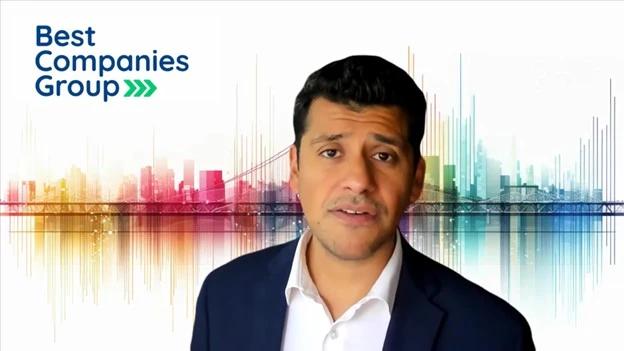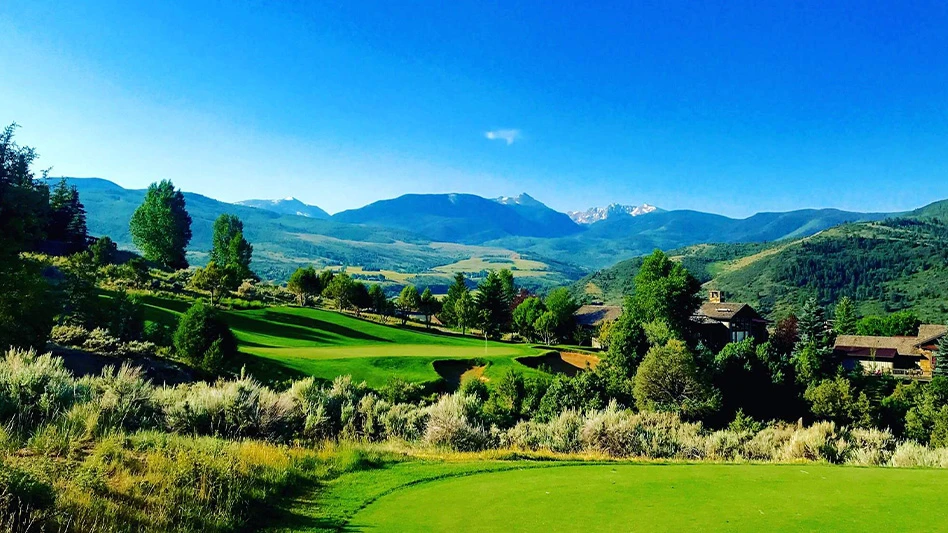After 45 years – except for a brief hiatus to serve in the Air Force – it’s safe to say Terry Bonar and Canterbury Country Club have been there for each other.
“It’s been a pretty good ride,” says the man who showed up at the course in Cleveland’s prosperous eastern suburbs as a green college kid in 1961 and who officially has overseen Canterbury’s grounds for almost 25 years.
Canterbury is a prestigious old club – a Herbert Strong design many feel is the best among a bevy of outstanding private facilities in the Cleveland area. The history of the place overflows with notable moments.
Jack Nicklaus broke Ben Hogan’s record for major wins at Canterbury with a victory at the PGA Championship in 1973. Bonar was there for that event. The club hosted the U.S. Amateur in ’64 and ’79. Bonar was there for those events. Canterbury was the site for four consecutive Senior TPCs – the tournament that essentially launched the Champions Tour – from ’83 to ’86. He was there. And the 1996 U.S. Senior Open? Guess who was hosting the event.
Currently, more than 300 members come to the club – when it’s not snowing – to enjoy one of the best facilities in the country.
Bonar has been a fixture at Canterbury for five decades. I’m guessing you can count the number of superintendents with that kind of tenure on your fingers and a couple of toes. And, if you factor in the USGA, PGA and Champions Tour events he’s hosted or assisted with during that time, he might be the only guy who’s stayed at an elite private club that long and survived the pressure of setting up big events.
So what’s the deal? How has he done it? What can you learn from a man who has defied all the odds, kept a mostly low profile and, amazingly, kept his pride and his sense of humor? I wanted to find out, so I visited him at his none-too-fancy maintenance facility that sits just a few hundred yards from the clubhouse of one of America’s great classic golf courses.
Are you the second-most famous person from Steubenville, Ohio?
Probably not, but my hometown is probably best-known because Dean Martin was born there.
Did you ever meet him?
Not in Steubenville, but I saw him in Las Vegas in 1959. I wasn’t old enough to drink at the time. He was playing blackjack with Frank Sinatra, and I screwed up my courage and introduced myself. I was able to see the Rat Pack during their heyday. That was pretty neat for a kid.
Your mom was a teacher and your dad was a steelworker. How’d you get involved in golf?
When I was 12 or 13, I got a set of clubs – actually it was an 8-iron, putter and a driver – and taught myself to play. I caddied a lot and ended up on the high school team (in Steubenville) and became a fair player. I was a two handicap at one point, and our team’s record while I was in school was 65-2. I graduated in 1958 and wasn’t sure what I wanted to do, but Penn State had just started their turf program, and I decided to give that a try to stay involved in golf. Burton Musser, Ph.D., was in charge of the program then and Joe Duich, Ph.D., was his understudy. We had guys like Frank Dobie, Bill Burdick and Bruce Denning in that class.
Had you worked in golf course maintenance at that point?
Yes. During college, I worked some at a football stadium and later worked at Oglebay Park in Wheeling, W.Va., but I hadn’t had much experience. When I graduated in 1961, Canterbury had sent a letter to Penn State looking for a crew member, and Duich asked me about it, and I said, ‘Hell, why not? It’s closer to home.” That’s how I ended up here.
I started in April of 1961. The superintendent was a Hungarian guy – so was most of the crew. He spoke some English, but spoke Hungarian to the rest of the crew when they didn’t want me to know what they were saying. They were good guys, and they liked me because I didn’t mind hard work. They taught me the little stuff – all the detail work –and educated me about the course. I kind of became an honorary Hungarian.
How did you end up in the service?
As a crew member, I was laid off during my first and second year. In my third year, I became an assistant. There was no way I was ready to take over, but I was definitely ready to be an assistant by the summer of ’63. That’s when I received a notice to take a physical for the (Army) draft. I went to see the Air Force recruiter because I didn’t want to be a “ground-pounder.” I ended up as an intelligence analyst. I spent my time analyzing intercept stuff and monitoring radio traffic. I was in school in Texas for a year, went to Germany for two years and then a year in Vietnam. I got out in ’67 and came back here.
You were here for the PGA Championship in 1973 and a bunch of other cool events. What was that like?
In ’73, they didn’t even televise much, only the back nine holes. There was no pro-am, no sponsor tents – the peripheral things were concession tents, bleachers and a few TV towers. It was a different time. We did a lot of prep work and worked long hours. By the time the tournament got here, I was fried. All the pros that I idolized were right here at our golf course, and I didn’t really care. We did all right and the event was a success, but it taught me a lesson. I made up my mind that I wouldn’t burn out myself or my crew before a big event.
During both U.S. Amateurs, we put up ropes but that was about it. They did televise the 1979 Amateur, but it was on a delay. By the time the Senior Open came in ’96, we’d hosted a bunch of events and working with USGA had never been a problem with us. It was great working with Tom Meeks, Tim Moraghan and Mike Davis. The event ran very smoothly. The weather cooperated, the course was firm and fast, and was well received by the players.
Did you use a bunch of volunteers from other area courses for the Senior Open in ’96?
I never did the volunteer thing. In ’96, Matt Shaffer (then at The Country Club of Pepper Pike in Ohio, now at Merion Golf Club in Pennsylvania) sent a couple of guys over as backups, but that was about it. Local superintendents Joe Volk, David Webner and Thom Martinek came over and kept me on the right track. I remember going to the Open at Congressional in ’95, and Paul Latshaw had 65 volunteers. I couldn’t imagine what I’d have done with all those guys. I’m sure Matt and Paul were just trying to help guys get a major on their resumes.
Is mentoring assistants and younger folks a big part of your approach?
It’s not something I’ve focused on every day, but since ’71, I’ve had 17 guys who have worked for me and moved on to become superintendents, including guys like Dan Pierson, Dave Webner, Joe Kosoglov, Bob Holmes, Doug Miller and Craig Kachline. I’m not trying to compete with Paul Latshaw or other guys like that. I’m not in a hurry to turn ’em over or run them off. I’m a little greedy and want the good guys to stay for a while.
Do you remember the first day – 25 years ago – that you were officially the superintendent at Canterbury?
I remember I lost a lot of sleep the first year. On one hand, I didn’t have to worry about what the superintendent thought anymore. But, on the other hand, I was responsible. I traded one set of troubles for another. It’s like buying a gift for your wife … no matter what you do, you’re worried you’ll be wrong.
What are the three biggest changes you’ve seen in the tools of the trade during your time?
No.1 is getting rid of steel golf spikes. It’s made the biggest improvement to our greens. The PGA Tour guys bitch about damage around the holes, but it’s their fault. It’s the stupid steel spikes. I can remember how bad our greens looked before we went to spikeless. There’s no comparison.
No. 2 is the development of plant growth regulators. I use Primo, and almost everyone I know is using it or other PGRs. Now you can fertilize and grow grass when you used to have to starve greens and fairways.
No. 3 is aerification equipment. Nothing can take the place of core aeration. It’s necessary, but we also deep tine and use the “job-saver” 3/8 inch tine. I’ve become a big fan of the PlanetAir. Dan Pierson from Wilmington Country Club (in Delaware) told me, “If you’ve got push-up greens, you’ve got to have one of these.” It’s expensive, but it’s fast and isn’t disruptive. It goes two inches deep – which is past my roots in some cases.
I snuck into your equipment building before I came here to your office. You have a ton of stuff, and some is pretty old. Are you collecting antiques or what?
There are no excuses at this level. The members don’t want to hear about broken-down equipment. I believe in backups and taking care of the equipment the club buys for me.
You’re pretty well-known throughout the industry. Do you get a lot of pressure to endorse products?
Not really. I get approached occasionally. To me, nothing carries as much weight as another superintendent I trust who’s using something. The first thing I do when I’m approached by a salesman with a new product is to ask is for their users’ list. I’ll call those guys. There are salespeople I trust – guys like Glenn Omari with Harrell’s. They’ve been there and they’re in the business for the long run. We’re blessed in northeast Ohio to have really knowledgeable and helpful sales reps.
How do you share your knowledge and experience with your peers?
I like to write articles, but it’s difficult. I do some things for our club newsletter and that gives me a lot of self-satisfaction. I’ve talked at the Ohio Turf Conference and been on panels, but not a lot. I don’t mind talking if they ask me to talk.
What do you tell young guys when they ask for your advice?
First, you have to be an honorable person. Honesty comes before everything else. You have to have a lot of resolve. Things aren’t going to go your way all the time. Don’t be afraid of hard work. Someone will notice if you’re out there humping every day. You have to motivate your people, and the best way to do that is by example. My father used to tell me, “Don’t be mediocre.” It stuck with me.
Are there too many young folks in the profession now?
Sure, or too few courses, depending on how you look at it. I was on the ATI advisory board for Ohio State’s turf program. I suggested every applicant should have to work on a course before they can enroll. You can’t have any illusions that this is an easy or simple job before you commit to a career in this business.
If you could change anything about the industry, what would it be?
There’s nothing wrong with most clubs that an influx of new members wouldn’t cure. We provide a quality product for a good price. I’m proud of that. As superintendents, our management skills are important. Things aren’t the same, and you have to change. We’ve cut our staff a little to keep up. Our budget hasn’t been cut, but we’re putting the money into the golf course. The members are proud of the golf course, and I’m honored to be in charge of it.
About six or seven years ago, my green chair asked what he could do for me. I told him I’d like to sit in on the board meetings. The president asked if I wanted to stay for the whole meeting, and I said if you’re asking I’m staying. I’ve learned a tremendous amount from that. It’s given me a new insight into how clubs run. It’s helped me and helped my credibility. They’re smart people and watching how they interact impressed me. I try to stay calm and mostly succeed. Sometimes I sit through the whole meeting and don’t say anything. Oftentimes it’s just better to listen.
One of the things they let me do is to help set the agenda for green committee meetings. Of course, I always ask him if he wants anything in particular on the agenda. The meeting is always scheduled for one hour before the board meeting. It’s a great idea because it helps the committee focus because they have to finish before the board meeting.
How do you survive for decades in a high-pressure club culture?
You hate to see someone lose their job, but the ones that do – it’s mostly because of things beyond their control. There’s a change in the general manager position or you have a g.m. who doesn’t recognize the value of the course. It’s good when the club manager and superintendent are on equal footing. You need to have regular meetings to talk honestly about what’s going on to prevent those kind of misunderstandings.
Do you think some veteran superintendents get in trouble because they begin to feel that it’s “their” golf course and the members can’t tell them what to do?
I want my assistants to think like that. They should feel a sense of ownership. But I’ve learned you can’t do that when you become a superintendent. If the members decide they want me to build a tee box on top of an oak tree, I’ll get three estimates. It’s their golf course. On the other hand, if its agronomic, that’s why they hired me.
You’re not quite the player you were in high school, but you’re still a good stick (an 11-handicap). How often do you play with members?
They want you to play golf, but don’t overdo it, it’s a fine line. You need to make sure everything’s right first. That’s your job. I tell my assistants they need to play. It gives you credibility with golfers. You don’t need to be great, but you need to be good. It gains people’s respect.
I know you’re in no hurry to retire, but you will eventually. How do you want to be remembered?
As an honorable person, someone who’s straightforward and willing to help, I always try to call the new guy in the neighborhood. During past years, they’ve been guys like Matt Shaffer, John Zimmers and other terrific guys. John Spodnik, who is now retired from Westfield Country Club, remembered my name when I just started at Canterbury. It meant a lot to me then and I’ve tried to pass that along. A sense of honor and a willingness to be a friend to your colleagues will take you a long way in this business.
So, what’s the secret? What have you done that’s enabled you to stay here so long?
I’ve been blessed over the years to have really good people on my staff. Some have moved on to other positions, but a lot of them stayed for a number of years. The staff I have now works very well together. I’ve learned a lot from being a superintendent, but the main thing might be that I’m good at efficiency of operation. I just have to look around and see where people are to know if things are going right. I’ve always thought I should spend money like it’s mine. I try to be very budget conscious. I want to give the club the best bang for their buck.
That’s worked out great, because I have credibility with the members. It’s the most valuable thing I have. I would never do anything to jeopardize that. You have to be an honorable person and treat people – the members and your employees with respect. GCI
Terry Bonar can be reached at 216-561-0909 at tbonar2@aol.com.

Explore the September 2007 Issue
Check out more from this issue and find your next story to read.
Latest from Golf Course Industry
- Editor’s notebook: Green Start Academy 2024
- USGA focuses on inclusion, sustainability in 2024
- Greens with Envy 65: Carolina on our mind
- Five Iron Golf expands into Minnesota
- Global sports group 54 invests in Turfgrass
- Hawaii's Mauna Kea Golf Course announces reopening
- Georgia GCSA honors superintendent of the year
- Reel Turf Techs: Alex Tessman





